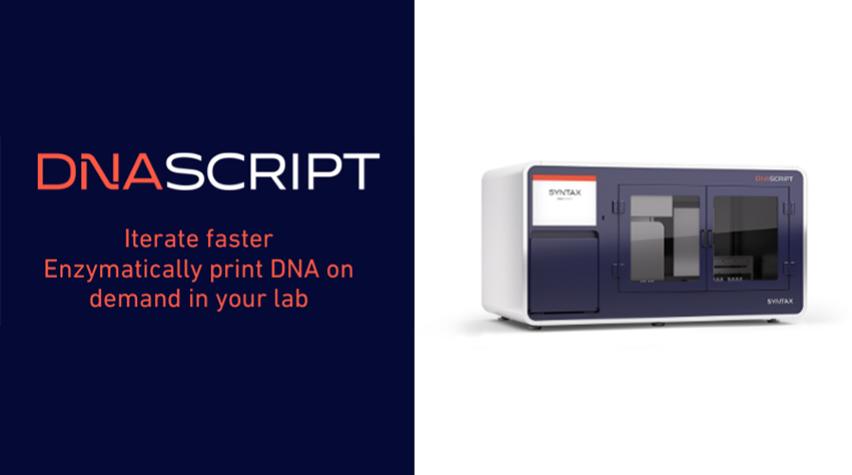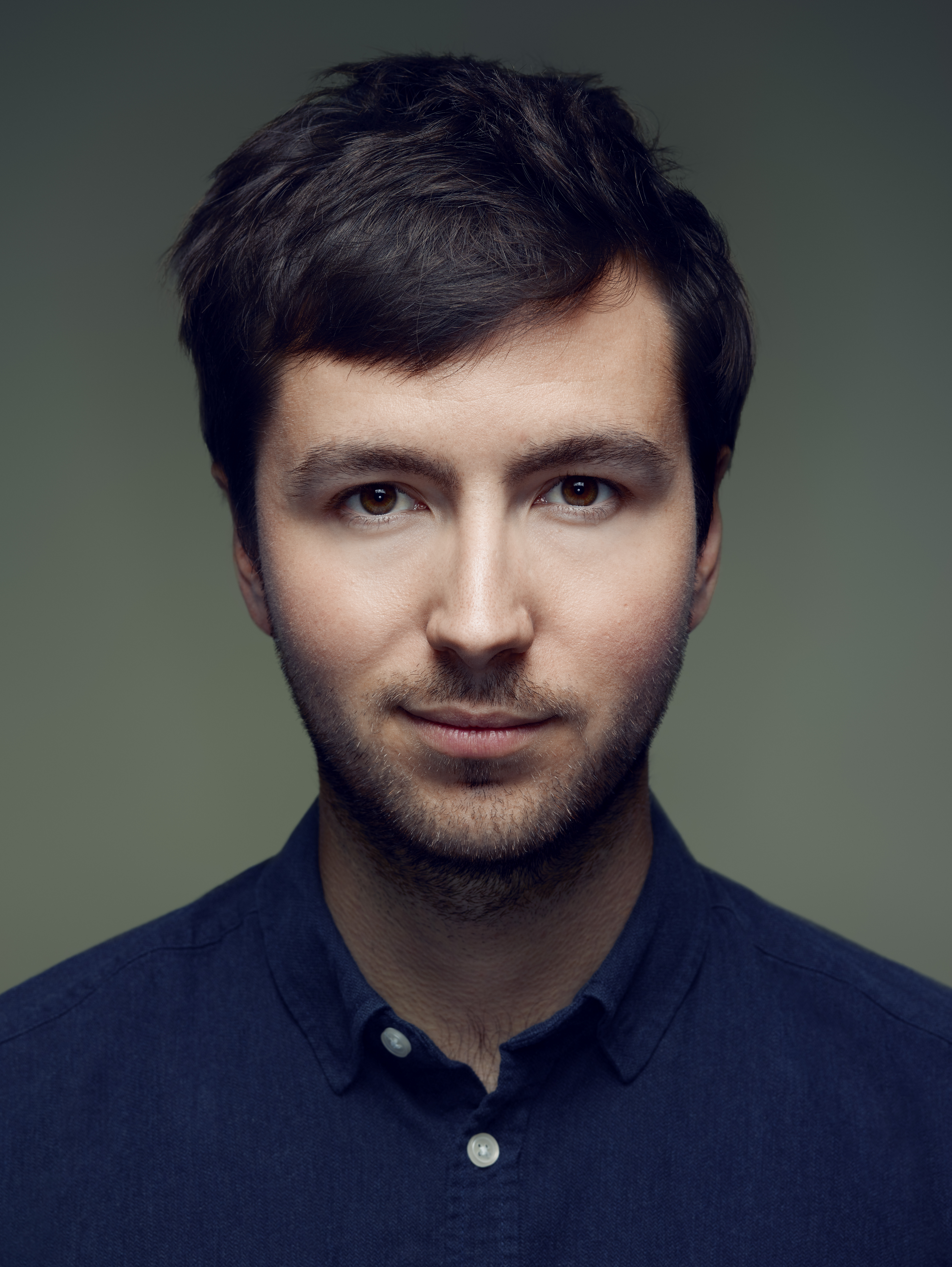
Disclosure: This post is sponsored by DNA Script and reflects their views, opinions, and insights.
Since the discovery of the double helix structure by Watson, Crick, and Rosalind in 1953, scientists have used DNA to understand biology and have used it in a wide range of applications ranging from agriculture to biomedicine. With the Covid-19 crisis in the last few years, DNA has been on the forefront on the news with mRNA vaccines and DNA-based PCR tests.
The scientific community and industry have relied on third-party synthesis vendors to provide the DNA they need for their projects. However, this supply model has been largely inefficient. Scientists can often wait weeks and sometimes months for their constructs to arrive, resulting in significant project delays and increasing overhead costs in the lab.
In this conversation, Xavier Godron, CTO of DNA Script, who commercialized the first automated benchtop DNA printer, discusses how the platform will improve how scientists work. He also highlights how his company is leveraging the power of its proprietary Enzymatic DNA Synthesis (EDS), a novel technology that is shaking up the synthetic biology market.
DNA Script is a sponsor of the 2023 Synthetic Biology: Engineering, Evolution & Design (SEED) Conference, the leading technical event for synthetic biology covering the field from its foundations to its commercial applications, being held May 30, 2023 to June 2, 2023 in Los Angeles, CA.
How is the future of DNA printing?
I believe that DNA printers will become as ubiquitous as PCR machines or sequencers. Just as people don’t think of outsourcing PCR, no one should be outsourcing DNA synthesis. Our vision at DNA Script is to make DNA synthesis as simple as paper printing. Pretty soon, desktop DNA printers will be a common sight in most laboratories and a key driver of the bioeconomy. It is well within our reach.
What is the biggest challenge with DNA synthesis today that is slowing down progress in the world of DNA?
DNA is synthesized with a chemical technology called phosphoramidite synthesis that has two challenges. First of all, the technology has limits in performances, it is very difficult to synthesize DNA longer than 200nt, and the purity is limited as well. The second challenge consists in the fact that this synthesis is complex, generates a lot of waste and investment to perform. Those barriers have forced the centralization of the DNA synthesis production model with a few factories making DNA for all groups. This centralized model has introduced significant complexity and caused a bottleneck that continues to hinder the speed and ease of access to DNA, and hold back progress.
There needs to be a democratization of DNA synthesis capabilities. Scientists shouldn’t have to let third parties control their access to DNA. This is a major problem, and we founded DNA Script to address this exact issue.
What is DNA Script doing to address the challenge and contribute to the continuing progress of DNA?
DNA Script has developed a new technology to synthesize DNA called Enzymatic DNA Synthesis. Enzymatic DNA Synthesis pushes the limit of performance on length and quality. Using only aqueous reagents, it also makes it easy to synthesize DNA in your labs. In 2021, we developed and delivered the world’s first benchtop DNA printer to that end. Our SYNTAX platform prints DNA oligos up to 120 nucleotides long overnight – without requiring human intervention. SYNTAX takes less than 15 minutes to set up, and delivers DNA at a normalized concentration that is ready to be used in a fully automated fashion when you would need five different instruments and dedicated person to synthesize DNA in a traditional fashion.
How does the benchtop DNA printer SYNTAX work?
We built a novel platform using our enzymatic technology that is designed to provide everything scientists need to make DNA themselves in a very easy and efficient manner. After acquiring SYNTAX and our DNA kits, our customers choose the DNA sequences they want to make, upload them into the computer, and then simply press “Run.” They can walk away and come back a few hours later when their DNA is ready, it’s really that easy. The exact speed-to-results depends on the length of the sequences, but the result in each case is ready-to-be-used DNA that can be used in a variety of applications and across disciplines.
You mentioned how SYNTAX uses enzymes. Can you talk about the difference between EDS and the conventional method? What is unique and innovative about the way DNA Script does DNA synthesis?
Enzymatic DNA synthesis, or EDS, is the core technology driving our SYNTAX platform. Enzymes are the tools used by Nature to synthesize DNA, and we are pushing It is an advancement over the traditional approach, which is based on phosphoramidite chemistry and makes DNA synthesis greener, easier to perform, high quality, and more predictable. This new biochemistry is powering our SYNTAX platform.
What about the biosecurity concerns about DNA synthesis? For all the good it can do, it can also be misused by bad actors. What is your position on biosecurity?
Staying on top of biosecurity issues or threats is something that everyone in the synthetic biology community should be concerned about. As scientists’ ability to reprogram biology in novel and interesting ways grows, so does the potential for misuse. From day one, DNA Script has prioritized biosecurity. We hired a smart and experienced team to think about the issues and put controls into place to help prevent technology misuse. Customer and sequence screening are the cornerstone of our biosecurity policy. We are also part of efforts to draft much-needed community guidance regarding the use of synthetic DNA. What we are doing is both powerful and impactful. And as a community, it is our responsibility to ensure that DNA synthesis technologies and users’ practices meet the appropriate safety measures.
Tell us a little about your professional journey and your company.
I co-founded DNA Script in 2014 in Paris. As an engineer, I am fascinated by how systems work, and I wanted to use my expertise to design technologies that make a difference. From the start, my vision was to pioneer new, innovative technologies that would give scientists more autonomy and unprecedented control over the DNA synthesis process. We want to give tools so that engineering biology is more like software programming. We’ve been able to embark investors in our vision and raise more than $300 million to build and commercialize our products, and I’m very proud of the team we have assembled to drive that change.

Xavier Godron
Xavier Godron is a cofounder and DNA Script's Chief Technology Officer. He is a PI in several projects financed by DARPA, IARPA, NIH & the European Commission. Mr. Godron received his engineering degree from Mines ParisTech.
Disclosure: This post is sponsored by DNA Script and reflects their views, opinions, and insights.

